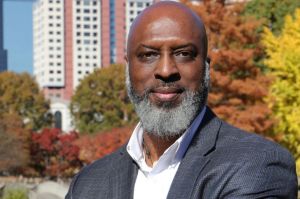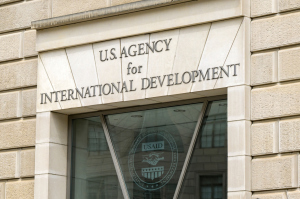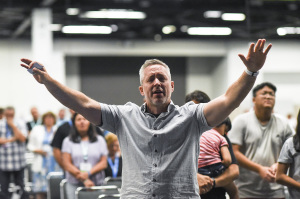10th Anniversary Study: Faith in New York Since 9/11
Number of Born Again Christians Surge
New Yorkers are more spiritually active today than they were immediately following the 9/11 attacks, according to a new study released today.
As the tenth anniversary of America’s largest terrorist event approaches, Barna Group tracked the long-term spiritual profile at one of the epicenters of the attacks – New York City.
The immediate chaos after the September 11 attacks was unprecedented as millions flocked to churches and houses of worship. The intense, heartbreaking anguish felt by the victims was felt throughout the nation.
But, how long did that spiritual behavior last?
A new study released today shows within a few months the spiritual lives of the nation’s population were back to pre-attack levels, which means their faith did not last long.
Researchers say the faith of New Yorkers changed significantly from September 2004 to January 2011. Their religious behavior (like going to church, reading the Bible, and praying) started to steadily increase.
“Most of the change in spiritual behavior seems to have happened since the middle of the last decade. Church participation in the New York market especially has shifted most since 2004,” said David Kinnaman, Barna Group president.
Weekly church attendance, for instance, was lowest in 1999 and 2000 (31 percent), but has steadily grown to 46 percent today.
In addition to worship attendance, several other measures of faith also showed increases among New Yorkers, including Bible reading, which grew from some 29 percent to 35 percent. Those who pray, read the Bible and attend church in a typical week has increased from 17 percent of the population to 24 percent.
“The research shows that spiritual change can and does happen, even in large population centers like the New York media market,” George Barna said in the report.
Barna said the increase in spirituality could be contributed to the 9/11 attacks and other crisis issues in America. The research shows that people have to go through the grieving process and this takes time.
Since the 9/11 attacks, there have been other threats of terrorist attacks, the Wall Street crisis, and the weakening economy. These are issues people have to deal with emotionally and their spiritual life reflects how they handle these crisis issues.
But there are also below-the-radar factors, like immigration and people moving into and out of the city, personal factors such as marriage or health issues, as well as the work and coordination of local faith communities in the metropolis.
“Whatever the combination of causes, the residents of the New York City region are more spiritually active, more likely to be ‘churched,’ and more committed to Christ than they were a decade ago,” Barna said.
The Barna report also shows that the percentage of New Yorkers who are unchurched declined in the last six months from 43 percent to 34 percent.
Another interesting statistic coming out of the study shows that the percentage of New York’s residents who qualify as born again Christians surged from 20 percent in the late 1990s to 32 percent today.
The Barna study suggests that faith and religion took on new urgency for many New Yorkers after 9/11, but the impact was neither immediate nor long-lived.
The bottom line is that while people’s born again commitment and religion’s importance did grow in the years after 9/11, church attendance and active faith measures did not really start increasing until after 2004.
Patricia Johnson, a consult for Focus on the Family, says there is no single pathway through grief or family crisis. People do share common responses.
“Besides understanding how stress can take a toll on us physically, emotionally and spiritually, we need to understand the practical guidelines to ease the process,” Johnson said.
“There are steps to grief recovery and it is a process. Increased spirituality helps everyone cope with a loss along with taking care of ourselves physically and emotionally.”
She says going forward doesn’t mean forgetting about the loved one who died. Enjoying life again doesn’t imply that the person is no longer missed. Piecing together your shattered emotions doesn’t mean you, somehow, betray a friend or family member. It simply means that your grief has run its course.
“Once people understand that going on with their lives is okay, their faith will increase and so does hope,” Johnson said.
“The death of a loved one is a shattering experience with far-reaching implications. As difficult as the loss may be, it is possible to move forward with hope for the future.”
Recognizing the difference between trauma and depression is also beneficial.
The Barna report was drawn from 3,406 interviews conducted in the New York City metro area. These telephone interviews were conducted every year in a random, representative fashion from 1997 through 2010.





























